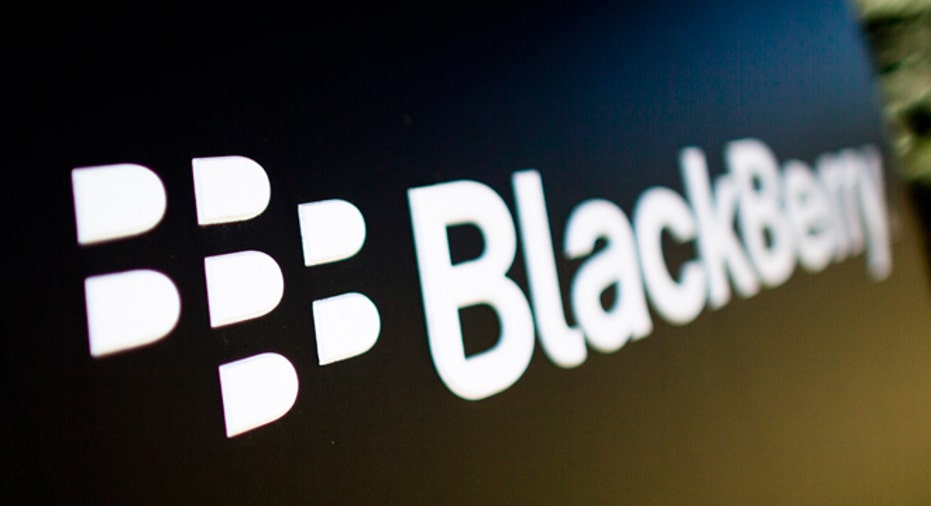Will BlackBerry Survive? Should It?

We live in a “What have you done for me lately?” world. And nowhere is that more apparent than in the brutally competitive high-tech industry, where companies spend years and megabucks developing groundbreaking products and powerful brands, only to see everything they’ve worked so hard to build evaporate in a heartbeat.
This is nothing new. Breakthrough innovations have been killing off market-leading companies – even entire industries – for as long as I can remember. And it’s been decades since companies learned that, if they didn’t cannibalize their own products with ongoing improvements, their competitors would be happy to do it for them.
The only real surprise is when companies think the rules don’t apply to them. It’s something I’ll never really understand. And believe me, I’ve tried.
I’ll never understand how Sony (NYSE:SNE) could get into the motion picture business, become a global media giant, completely take its eye off the ball on the consumer electronics industry it once dominated – and then try to pull a fast one by promoting synergies between their disparate businesses.
I never understood how former CEO Howard Stringer could, with a straight face, explain over and over how watching a Sony movie on a Sony TV-streamed through a Sony PS3, for example, would somehow make a difference in the user experience. It doesn't. I know Sony desperately wanted that to be true, but it simply wasn’t. And it still isn’t.
And while all that ridiculousness was going on, along comes Apple (NASDAQ:AAPL), Samsung and Google (NASDAQ:GOOG) and, next thing you know, Sony’s nothing but a consumer electronics has-been that invented the Walkman, the Betamax, the Trinitron picture tube, and, wait, didn’t they popularize transistor radios after World War II or something?
Even more baffling than Sony is the strange tale of the company formerly known as Research In Motion.
How that whacky pair of BlackBerry (NASDAQ:BBRY) co-founders from Waterloo – Mike Lazaridis and Jim Balsillie – thought that, just because they built a multi-billion dollar business off a bunch of executives, VCs, and investment bankers with flexible thumbs, they could just sit on their laurels, never do another innovative thing as long as they lived, and the big fat checks would just keep coming in.
So when Apple showed up to the party with their cool little iPhone and its awesome multi-touch display, virtual keyboard, web browser, and third-party apps, these guys just naturally figured none of that would ever catch on and they had nothing to worry about. Ditto with Android, the iPad, and all their subsequent iterations.
It took BlackBerry’s co-CEOs years to get up off their you-know-whats and begin developing a feeble competitor that, when it finally launched, was generations behind Apple and Google. It’s as if the Canadians had never heard Wayne Gretzky’s famous quote, “I skate to where the puck is going to be, not where it has been.”
And how about all the years the company’s founders and their Kool-Aid drinking disciple, Thorsten Heins, squandered since 2007 when, even if they had no competitive intelligence about what was coming at them, at least by then they could see millions of users waiting in long lines to get their hands on the new devices that made their CrackBerrys look like ancient technology.
And now everyone wants to know if BlackBerry will survive. They’re asking the wrong question. The right question is “Does BlackBerry deserve to survive?” And the answer is absolutely and emphatically, “No, it doesn’t.” It’s dead already. Cause of death: natural selection, evolution, survival of the fittest, or the Peter Principle, take your pick.
BlackBerry has no more business surviving than the dinosaurs did. The same goes for Digital Equipment, Nortel and Kodak, for that matter.
Granted, there was a time when IBM (NYSE:IBM) and Apple were on the ropes, but their boards had a clue. They knew what was going on. They knew they were in trouble. They took the right steps, brought in a couple of brilliant leaders – Lou Gerstner and Steve Jobs – who turned them around, and, well, look at them now.
Not only are high-tech turnarounds few and far between, BlackBerry’s board of bean-counters – I mean directors – simply doesn’t have what it takes. If it did, it wouldn’t have waited so long to do what everyone with a clue knew had to be done – quit living in denial, admit the company’s in trouble, and bring in someone who knows what he’s doing to try and fix the company.
BlackBerry doesn’t deserve to survive because its officers and directors essentially did nothing until there was nothing left in Waterloo but some cash and a few dusty old patents. BlackBerry isn’t the first dinosaur doomed to extinction by incompetent leaders in a competitive industry and it certainly won’t be the last.



















